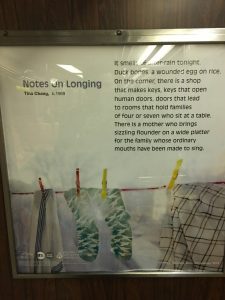Sylvia Plath led a very interesting life. To start at the beginning, Sylvia was born on October 27th 1932 in Boston Massachusetts. At a young age of 8, Sylvia’s father died which is attributed to her writing of her poem “Daddy“. Continuing Chronologically, she attended Smith College where while a student she attempted her first suicide attempt at the age of 20 where she took sleeping pills and went basement of her house. Unsuccessful, she stayed in intensive care for 6 months after. She then moved to Cambridge England in 1956 where she promptly married a man who was also a poet, Ted Hughes. She published her set of poems in 1960 named “Colossus“. That same year she had her first child Frieda, and shortly after in 1962 she had her second child named Nicholas. In June of that same year Sylvia Plath had a car accident that seemed to be another suicide attempt. Also that same year she had found out that her husband was having an affair with a woman named Assia Gutmann Wevill. After these events she was severely depressed and in 1963 was found dead in her home by suicide. She had left a note for her neighbors to call for a doctor, while she left her head in the oven with the gas turned on and her children safe in another room. Sylvia Plath was deeply disturbed and had a traumatic series of events in her life, while quite tragic, led to great literary works. A lot of her works were not released until after death. She is also the first person to receive a Pulitzer prize after death.
Citations
“Mark Doty.” Poets.org, Academy of American Poets, 15 Mar. 2017, www.poets.org/poetsorg/poet/sylvia-plath.
Kean, Danuta. “Unseen Sylvia Plath Letters Claim Domestic Abuse by Ted Hughes.” The Guardian, Guardian News and Media, 11 Apr. 2017, www.theguardian.com/books/2017/apr/11/unseen-sylvia-plath-letters-claim-domestic-abuse-by-ted-hughes.
“Sylvia Plath.” Biography.com, A&E Networks Television, 28 Apr. 2017, www.biography.com/people/sylvia-plath-9442550.




